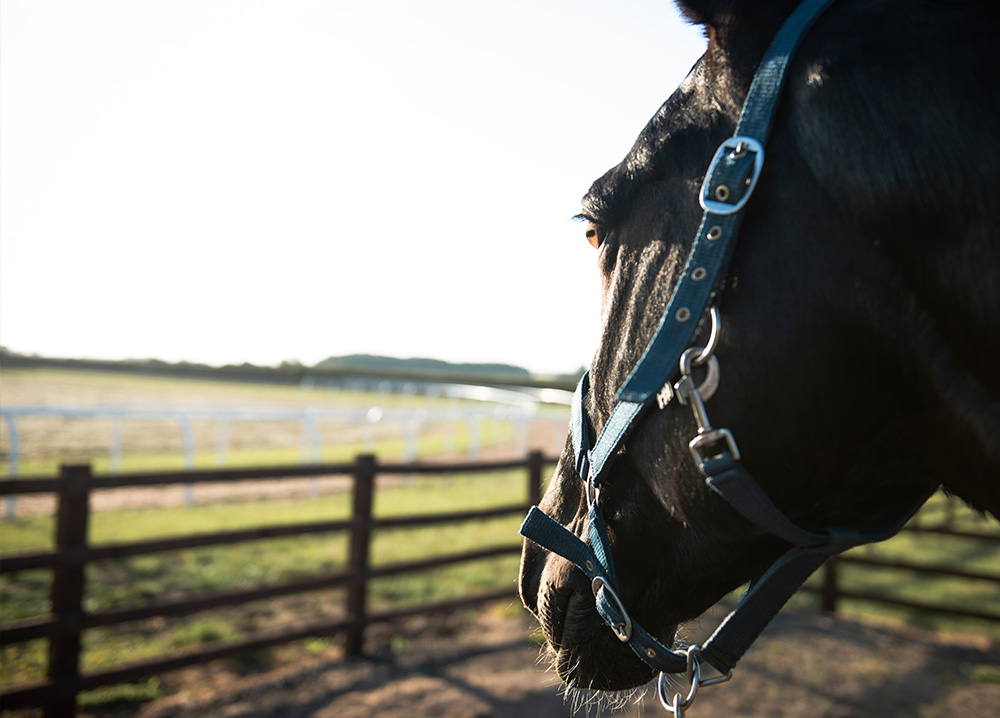
All horse owners know that injuries happen, and not many competition horses or happy hackers will get through their working life without needing a period of rehabilitation. What matters when the worst does happen is that you formulate and stick to a rehab programme which achieves these three key aims:
- Happy, healthy horse
- Safe for horse and human
- Successful rehab
The most important thing is that the horse remains as happy and healthy as possible throughout the rehabilitation process. Their welfare should be at the heart of everything you do and the decisions you make, so bear that in mind when you plan your horse’s rehab. The next key aim is to ensure that the process is safe for the horse and for you, the handler. A frustrated, bored horse can be a handful and change your normally placid beast into a snorting dragon! And finally, ensuring a successful rehabilitation, whether you count success as getting them to the point where they can enjoy retirement in the field or restoring them to competition fitness and ability.
Here at Thorpe Farm, we rehabilitate horses for both professional riders and owners and for local leisure riders, so we know it’s always a balance between caution and progress and we take it at the right speed for the horse in question. Here are some of our top tips to help you rehabilitate your horse successfully whilst keep them happy and you both safe!
Make box rest more bearable
If box rest is part of the rehab programme, then you need to be prepared to keep them occupied for part of the day. Horses are social, herd animals so being stuck in a stable all day long will be tough mentally as well as physically. Think about giving them toys to play with, such as apples or carrots threaded on a rope, and use a very small hole trickle feeding hay net if appropriate. Feeding forage off the floor can help keep airways and lungs in good shape as they drain more easily but can lead to them eating their portion very quickly! A slow feeder such as one from Haygain is a great idea if you have the money.
Minimise dust in their environment
Remember the stabled environment can be dusty and if the horse is there all the time, it can cause allergies or respiratory infections to rear their heads. You can think about buying bedding which is as low-dust as possible, buying a breast bar so you can have the door open and checking your forage for dust. Steamed hay or haylage can help keep your horse properly hydrated when they are on box rest, something which is particularly useful during the summer months.
Start off slow with in-hand walking…
….and stick to straight lines! Remember not to go from box rest and little movement to marching them around as you normally would when they are healthy. Let them build up slowly and stretch their muscles, going at the pace which suits them (but not letting the blood go to their head!). Walking your horse in circles in the yard or in a lunge pen could exacerbate injury so stick to straight lines as much as possible.
Explore rehabilitation therapies
Using the water treadmill is an excellent way to support recovery from a range of muscoskeletal injuries, once your vet is happy for them to progress to this stage. It not only delivers very controlled, low-impact exercise but also helps build topline muscles and improve cardiovascular fitness. We also use the TheraPlate with rehab liveries as it offers a range of benefits to support healing, such as increased blood flow and pain relief. Our salt therapy chamber is an excellent complimentary therapy for horses suffering from skin or respiratory disorders, and it’s 100% natural and non-invasive too!
Be patient
It’s far better to spend one week extra on in-hand walking than it is to move too quickly and risk re-injuring your horse and going back to square one! The same is true for any stage of your rehab – take it slowly as rushing can put your progress back by weeks. Make sure you feel their legs every day for changes in heat or swellings and call your vet or other professional if you have any worries. With expert care, a structured approach and plenty of patience the chances of success are much higher!